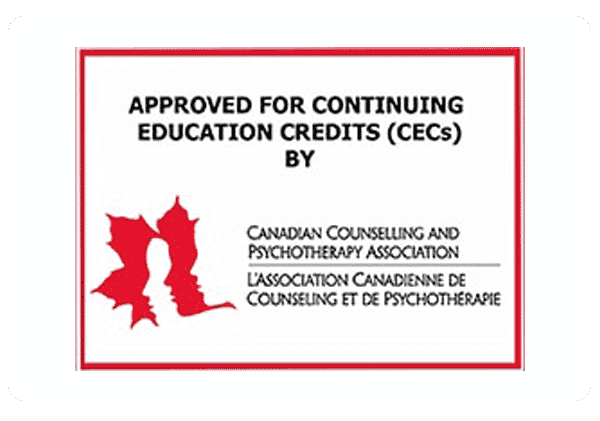Coming Apart, Coming Together: Reconciling Trauma Survivors’ Parts – Dr Piera Briganti
During the past decades, the interest of clinicians and researchers in dissociative disorders has grown exponentially, so has the knowledge about their origins and the survival purposes of these disorders. While psychotherapy still remains the most effective treatment for trauma-related dissociation, not all trauma focused approaches are as effective for dissociative disorders as they are in treating less elaborated issues.
EMDR is a renowned psychotherapy first developed by Francine Shapiro in the late 80’s and tested in the treatment of PTSD and trauma related conditions; after years of research and clinical practice, EMDR has been proven effective for several other mental health issues. In the process of becoming officially trained in EMDR, therapists are taught to screen for dissociative disorders for the sake of their patients and treatment outcomes; this has led many in our field to be uncertain if using EMDR processing, spending years in phase 2, otherwise known as preparation phase, waiting for their patients to be “ready to process traumatic memories”.
While a thorough assessment for dissociative disorders should be considered good practice, during the last decades different authors have developed modifications of the standard EMDR protocol specifically targeting the complexities of structural dissociation, allowing the therapeutic work to unfold with minimum blocks and walking towards resolution progressively and safely, while introducing EMDR procedures early during treatment. Complex issues such dissociative disorders need to be addressed with flexibility and creativity, adapting interventions to the specific individual and their own internal fragmentation.
In this 3 hour course, participants will learn how to combine some of these EMDR adaptations and to put them into practice. A practical angle will be offered by clinical vignettes to create a deeper learning experience.
TRAINING information
During the past decades, the interest of clinicians and researchers in dissociative disorders has grown exponentially, so has the knowledge about their origins and the survival purposes of these disorders. While psychotherapy still remains the most effective treatment for trauma-related dissociation, not all trauma focused approaches are as effective for dissociative disorders as they are in treating less elaborated issues.
EMDR is a renowned psychotherapy first developed by Francine Shapiro in the late 80’s and tested in the treatment of PTSD and trauma related conditions; after years of research and clinical practice, EMDR has been proven effective for several other mental health issues. In the process of becoming officially trained in EMDR, therapists are taught to screen for dissociative disorders for the sake of their patients and treatment outcomes; this has led many in our field to be uncertain if using EMDR processing, spending years in phase 2, otherwise known as preparation phase, waiting for their patients to be “ready to process traumatic memories”.
While a thorough assessment for dissociative disorders should be considered good practice, during the last decades different authors have developed modifications of the standard EMDR protocol specifically targeting the complexities of structural dissociation, allowing the therapeutic work to unfold with minimum blocks and walking towards resolution progressively and safely, while introducing EMDR procedures early during treatment. Complex issues such dissociative disorders need to be addressed with flexibility and creativity, adapting interventions to the specific individual and their own internal fragmentation.
In this 3 hour course, participants will learn how to combine some of these EMDR adaptations and to put them into practice. A practical angle will be offered by clinical vignettes to create a deeper learning experience.
Learning Objectives
Participants will be able to:
- Assess the presence of dissociative disorders and differentiate between dissociative disorders and
dissociative symptoms in C-PTSD; - Explain the causal relationships between childhood and attachment trauma, C-PTSD and Dissociative Disorders;
- Integrate concepts and techniques from the main trauma focused approaches (Trauma Model Therapy, AIP model and EMDR Adaptations, Attachment theory, Polyvagal Theory) in the treatment of dissociative disorders.
About the Speaker

therapist and runs a private practice based in Italy. Before coming back to Italy she lived in Spain for 4 years where she first started to work online in addition to in-person practice.
Her areas of expertise are Complex-PTSD, Dissociative Disorders, Eating Disorders and Personality Disorders; she also works as a trainer for a private school providing master programs to clinical psychologists and psychotherapists in EMDR and Sexology, where she teaches the C-PTSD and Dissociation module.
Working with the complexity of traumatised patients and their fragmented internal worlds, she finds adaptations of standard EMDR protocol to work better with these patients, along with integrations from an attachment-informed perspective, having studied under Giovanni Liotti, the Progressive Approach from Dolores Mosquera and Polyvagal Theory concepts from Stephen Porges, all inspiring authors and clinicians.
CPD/CE
CPD / CE / NBCC credits available: 3
How do I receive these credits?
The participant must pass the multiple-choice test with a minimum score of 80%. There is a maximum of three attempts to achieve this.
The post-test is included in the price of the training.
Does my regulatory body accept the credits?
The CPD & CE credits awarded can be used towards your declaration to any governing regulatory body in your state or country, provided the content is relevant to your discipline.
Our trainings are accredited by:
– The CPD Group, London
– Canadian Counselling and Psychotherapy Association
– Australian Counselling Association
– National Board of Certified Counselors (NBCC)







